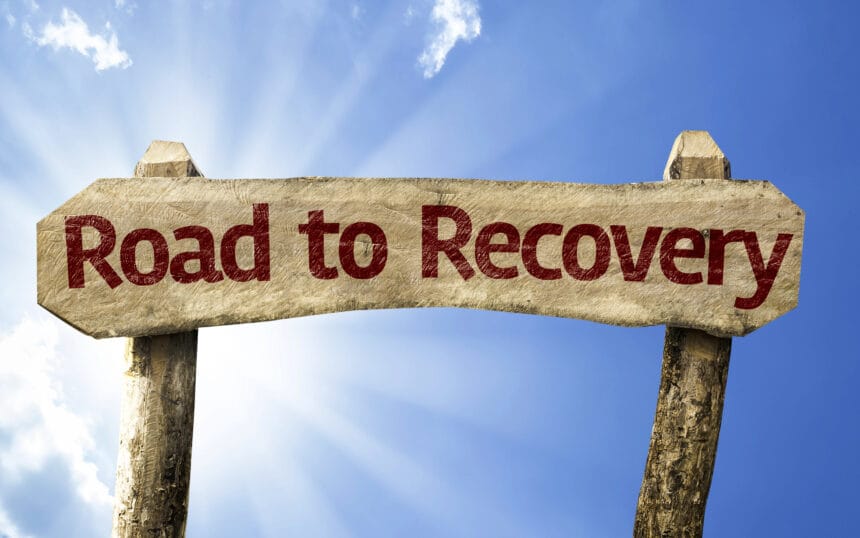You shouldn’t be discouraged if you are struggling with addiction. Around 75% of people that want to overcome it are able to do so.
There are many amazing health benefits of overcoming addiction. You will have better sleep, a stronger immune system, a healthier weight and be less susceptible to mental health issues like depression and anxiety. You will want to make it a priority to get over your addiction.
Overcoming addiction is a monumental step that opens the door to a new world of opportunities, healing, and personal growth. The path to recovery is not a straight line; it’s a journey of rediscovering oneself and learning to live life with a new sense of purpose and clarity. As individuals step out of the shadows of their past, they face both challenges and triumphs in creating a substance-free life filled with promise and possibilities. Keep reading to explore the essential components of starting anew after grappling with addiction.
Embracing The Journey To Recovery: A New Chapter Post-addiction
To embark on this journey, acceptance is pivotal. Recognition that one’s life must change is the first step towards transformation. The recovery process is unique for everyone, requiring a tailored approach that suits individual needs; a blend of therapy, medical support, and personal willpower. Stepping into this new chapter means leaving behind old habits and environments that may trigger relapse, replacing them with positive influences and self-care practices.
It’s not uncommon for those in recovery to confront other underlying mental health issues. This is where dual diagnosis treatment in California or your area becomes critical; it merges substance abuse treatment with mental health care, addressing both facets to promote holistic healing. Programs of this nature understand that addiction doesn’t exist in a vacuum and that treating co-occurring conditions is essential for long-term recovery.
Transitional phases come with inevitable uncertainties and fears, but these emotions provide an opportunity for growth. It’s about forging a new identity, free from the constraints of addiction. This phase can be a chance to develop new hobbies, establish fresh goals, and redefine one’s life vision. The key is to embrace change with resilience and open-mindedness, harnessing every challenge into a stepping stone towards a brighter future. Mindfulness has a lot of advantages in general, but it can be especially important when you are trying to get over your addiction.
Structuring Life After Addiction: Routines and Healthy Habits
Post-addiction life requires a solid structure to minimize the void that substances once filled. Establishing a daily routine can instill a sense of stability and normalcy. It’s through these predictable patterns that individuals find a rhythm that discourages old, destructive behaviors and encourages productivity and mindfulness.
Incorporating healthy habits is also paramount. Regular exercise, balanced nutrition, and adequate sleep all contribute to better physical and mental health. These habits boost endorphins, enhance mood, and increase energy levels, all while providing a positive outlet and a sense of accomplishment that reinforces the decision to remain sober.
Learning and personal development play a crucial role as well. Pursuing educational goals, such as a medical laboratory science master program, can shift focus toward a fulfilling career path. Further education not only opens professional doors but also serves as a motivator and a testament to personal progress and determination.
Finding Purpose Beyond the Struggle: Personal Development and Goals
Overcoming addiction often leaves a vacuum that calls for a new sense of purpose. Setting goals is therefore integral to the recovery process. Objectives give direction and meaning to life after addiction, whether they are related to career, education, health, or personal aspirations. These goals anchor individuals in their new reality and motivate them to strive for success and fulfillment.
Personal development takes various forms; it can be about acquiring new skills, nurturing passions, or simply becoming the best version of oneself. Engaging in volunteer work, for instance, can offer a profound sense of contribution and community connectedness, demonstrating that everyone has value to offer to the world.
Rebuilding Relationships and Trust: The Process of Healing and Connection
Rebuilding relationships post-addiction is a delicate process. The strain that dependency places on personal connections can lead to mistrust and hurt, which requires time and effort to heal. Compassionate communication and setting boundaries are key components in re-establishing these relationships. It’s essential to understand that while some relations may mend, others may not, and that’s an aspect of recovery that one must be prepared to accept.
Trust is rebuilt through consistent, reliable actions. Making amends where possible and demonstrating a commitment to change helps in showing loved ones that there is genuine effort being put into maintaining sobriety. It’s about matching words with actions and being patient, as trust isn’t rebuilt overnight.
Overall, embarking on a new life post-addiction can be a profound journey of rebirth and discovery. It demands courage, hard work, and an unwavering commitment to self-improvement. By embracing change, building strong support systems, and finding new purpose, individuals can create a fulfilling life, rich with potential and free from the constraints of addiction. While the road may be long, a life of sobriety and purpose is worth every step.

